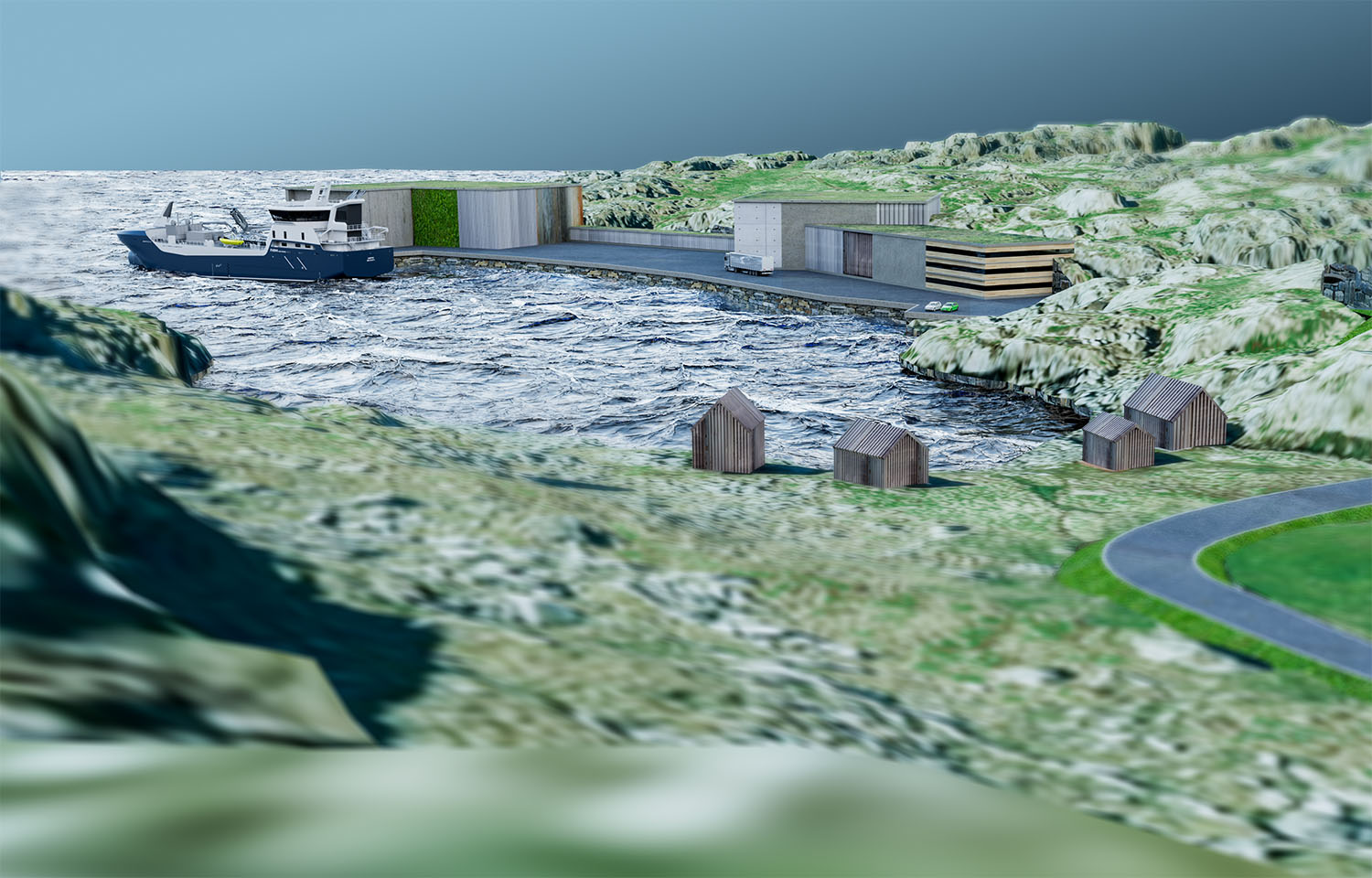Norwegian Mountain Salmon (NMS) is planning to bring a unique method of land-based salmon farming to Scotland.
NMS is proposing a GBP 600 million (USD 758 million, EUR 701 million), 224-tank fish farm on the remote Isle of Lewis off the northwest coast of Scotland. The company aims to build the farm under a hillside for maximum efficiency and minimize biological risks, with the potential to provide 500 million salmon dinners every year to consumers around the globe, according to Bård Hjelmen, the company’s chair and project manager.
If everything goes to plan, the farm would produce 85,000 metric tons (MT) HOG annually at full capacity and boost total Scottish output by 40 percent, according to Hjelmen. Barring delays, construction would start in early 2028, with phased fish production entering the market between 2030 and 2035.
Though ambitious, Hjelmen said he believes the proposed farm is feasible for NMS.
“We have developed our concept for low-energy, land-based, flow-through fish farms in mountain halls over several years, working with experts in the field, including Norconsult and Artec Aqua,” Hjelmen said. “The aim is to improve on the production efficiency reported from similar farm concepts and optimize fish health. We are confident that we can improve considerably on sea-based production mortality rates of 22 percent.”
According to the company, advantages of its mountain pool system compared to traditional sea pens include no sea lice, fish escapes, or algal blooms, as well as the ability to grow fish in separate biological zones, which minimizes the risk of disease, grants total control over water quality, and provides 24-hour monitoring.
“Distance from traditional fish farms is also an important consideration that will minimize the risk of transferring disease,” Hjelmen said.
The Isle of Lewis has so far ticked all the boxes for NMS, but plans for a potential farm site are still at the evaluation stage; discussions are ongoing with local planning authorities and owners of the privately owned crofting estate where it would be located.
“We began our journey in Norway but have always aimed toward international expansion. We believe we have found just the right location to launch our international efforts on Lewis,” he said.
However, Hjelmen admitted he did not expect so much ...








